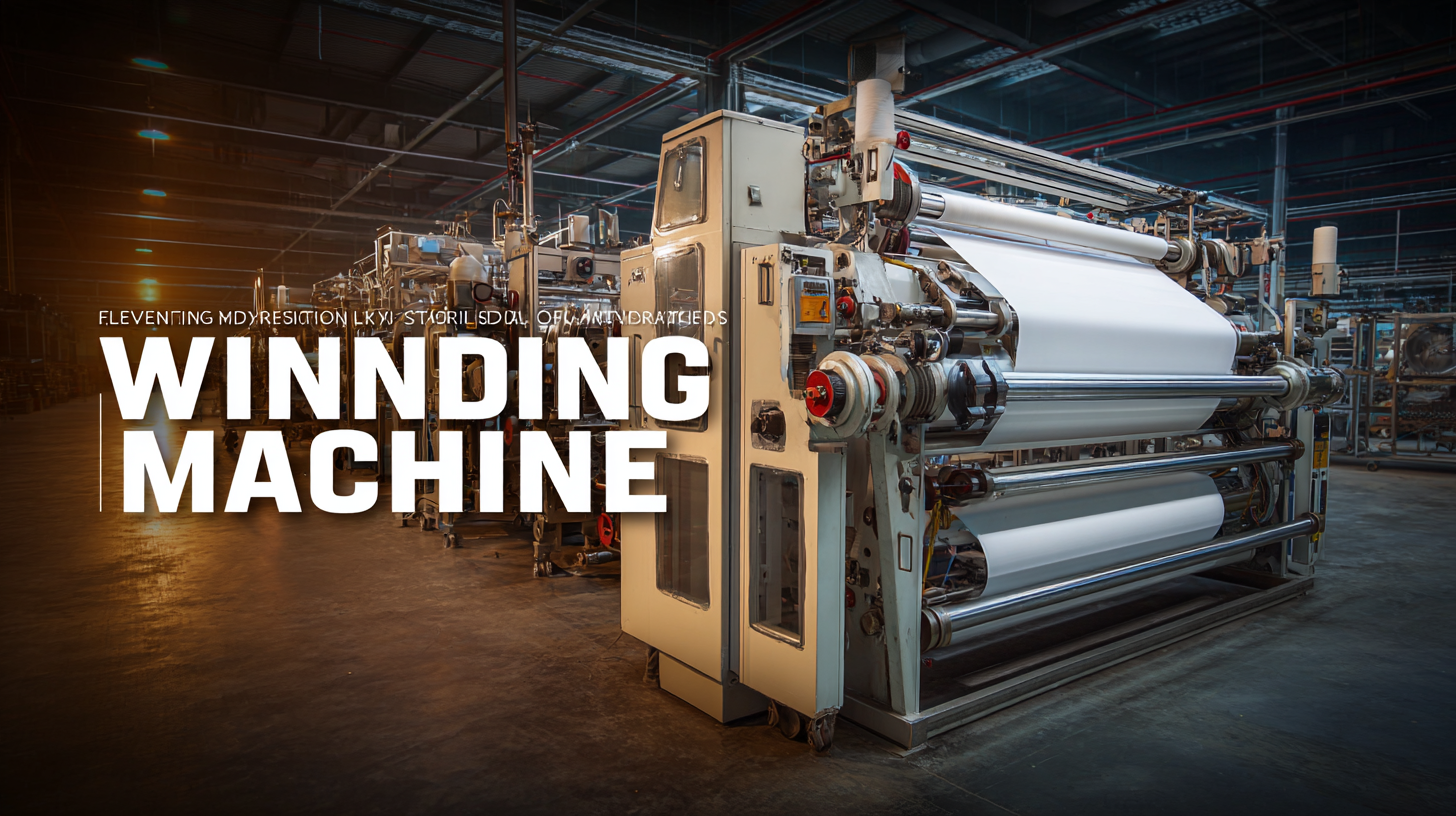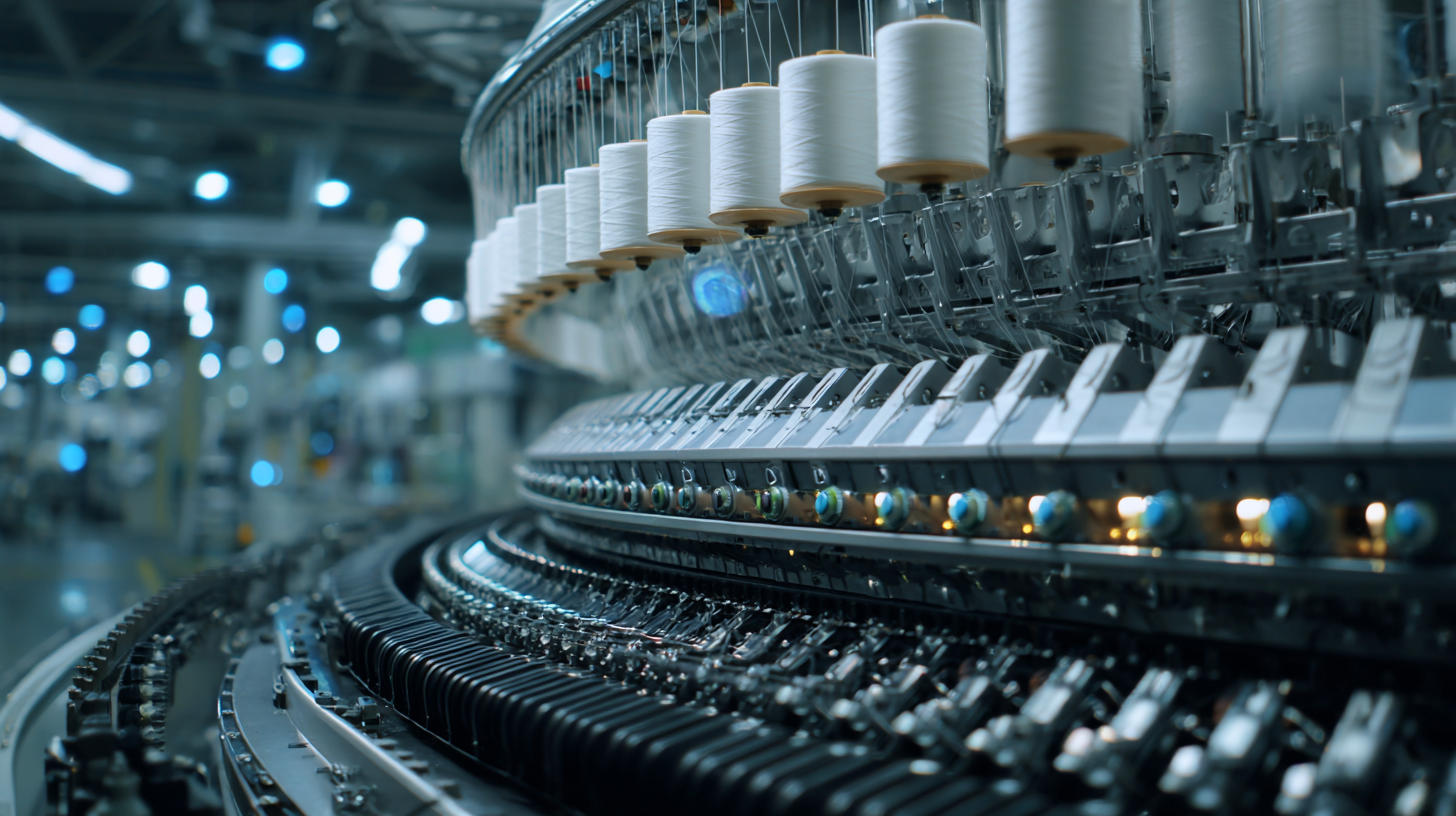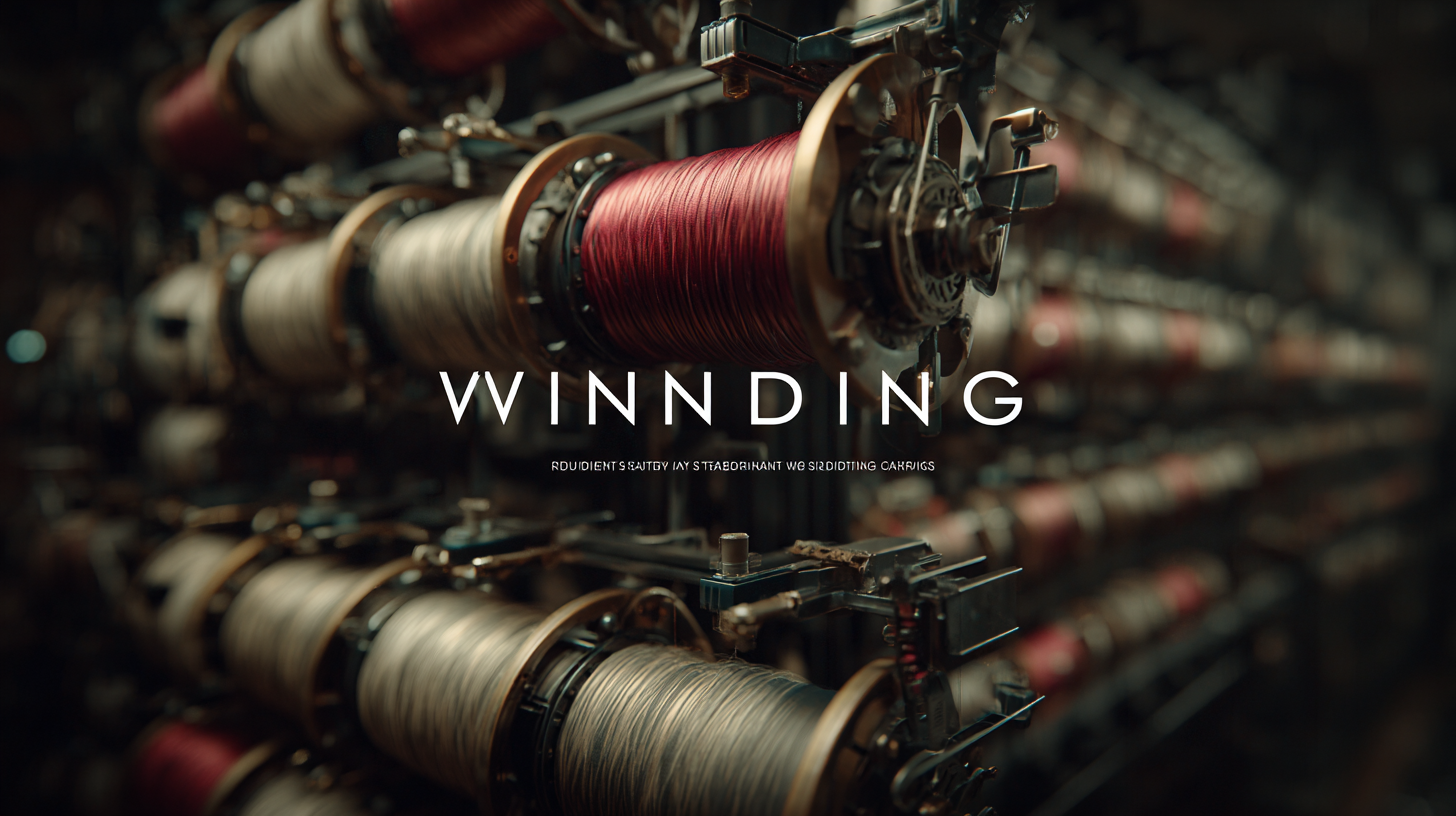
Elevating Industry Standards with the Best Winding Machine for Global Supply Chains
In the ever-evolving landscape of global supply chains, the importance of high-quality machinery cannot be overstated. Among the key players in this domain is the winding machine, a vital tool that ensures efficiency and precision in the production process. As industries strive to elevate their standards, finding a reliable supplier of winding machines becomes paramount. This blog aims to guide you through the essential steps to identify and select the best suppliers, emphasizing the critical factors that contribute to the overall performance and reliability of winding machines. We delve into the characteristics of top-notch suppliers, while also providing an ultimate guide to navigating the complexities of procurement in this competitive field. Whether you are an industry veteran or new to the market, understanding how to source high-quality winding machines can significantly enhance your operational excellence and contribute to a more robust global supply chain.

Advantages of Advanced Winding Machines in Industrial Applications
Advanced winding machines have become a cornerstone in optimizing industrial applications across global supply chains. With the capability to enhance precision and efficiency, these machines significantly minimize material waste and production time. According to a report by MarketsandMarkets, the winding machine market is projected to reach $2.1 billion by 2025, reflecting a growing demand for automation and high-quality manufacturing processes.
One of the key advantages of advanced winding machines is their ability to incorporate smart technology. Features like real-time monitoring and predictive maintenance not only streamline operations but also dramatically reduce downtime. Companies using smart winding machines have reported up to a 30% increase in productivity. To maximize these benefits, industries should invest in training their workforce on advanced machine features, ensuring they can leverage the technology fully for optimal output.
Furthermore, energy efficiency is another compelling reason to adopt modern winding machines. Studies indicate that advanced winding technology can reduce energy consumption by as much as 25%. To enhance this energy-saving aspect, businesses are encouraged to perform regular audits of their machinery and consider upgrades that align with sustainability goals. By embracing these innovations, companies not only elevate their manufacturing standards but also contribute to a greener future.

How High-Quality Winding Machines Improve Product Consistency
High-quality winding machines play a pivotal role in enhancing product consistency across various industries. As manufacturers strive to meet the demands of a global supply chain, the precision of their winding processes becomes crucial. These machines are designed to deliver consistent tension and uniform coil formation, which directly affects the performance and durability of the final product. By minimizing variability in the winding process, companies can ensure that each unit produced meets the same high standards, ultimately leading to increased customer satisfaction and reduced waste.
Moreover, investing in superior winding technology can significantly streamline production efficiency. Advanced winding machines often incorporate automation and intelligent control systems that monitor the process in real-time, identifying potential issues before they result in costly defects. This technological integration not only boosts the quality of the output but also enhances operational workflows, allowing manufacturers to respond swiftly to market demands. As a result, businesses can maintain a competitive edge while adhering to strict industry standards, solidifying their reputation as reliable suppliers in the global marketplace.
The Role of Winding Machines in Streamlining Global Supply Chains
Winding machines play a pivotal role in optimizing global supply chains by ensuring efficiency and precision in the production process. These machines are essential for the manufacturing of diverse products within various industries, including textiles, electronics, and automotive. By automating the winding process, businesses can significantly reduce waste, minimize errors, and accelerate production timelines, which are critical factors in today’s fast-paced market environment.
In addition to enhancing operational efficiencies, modern winding machines come equipped with advanced technologies that facilitate real-time monitoring and data collection. This capability allows manufacturers to gain insights into their production processes, enabling proactive adjustments to enhance productivity. As global supply chains become increasingly interconnected, the ability to streamline operations through sophisticated winding technology is paramount for maintaining competitive advantage and meeting the growing demands of consumers. The incorporation of these machines into production lines not only improves output but also ensures that the highest quality standards are met, fostering trust and reliability within the supply chain.
Cost-Effective Solutions Through Efficient Winding Technologies
In today's competitive market, businesses strive for cost-effective solutions that drive efficiency and productivity. One area that has seen significant advancements is winding technology, which plays a crucial role in various industries, including textiles, electronics, and automotive. By adopting the latest winding machines, companies can optimize their production processes, reduce waste, and improve overall product quality.
These machines, designed with cutting-edge features, enable precise coil winding and minimize errors, thereby providing a strong return on investment.
Efficient winding technologies not only contribute to lower operational costs but also promote sustainability. With energy-efficient designs and reduced material consumption, manufacturers can achieve their sustainability goals while enhancing their bottom line. Moreover, the integration of smart technologies, such as IoT and automation, allows for real-time monitoring and data analysis, further streamlining workflows. As global supply chains become increasingly complex, investing in advanced winding machines becomes a strategic move, ensuring that businesses remain competitive and responsive to market demands.
Innovations in Winding Machine Designs for Enhanced Performance
In the modern manufacturing landscape, the performance of winding machines has taken center stage due to the growing need for higher power density in electrical machines. As industries strive to meet the rigorous demands of global supply chains, innovations in winding machine designs are critical. These advancements not only enhance the efficiency of the winding process but also improve the overall mechanical integrity of the end products. With enhanced designs, manufacturers can produce components that withstand increased electrical, thermal, and mechanical stresses, ensuring reliability in high-performance applications.
The evolution of winding machines also reflects the broader trend of incorporating advanced technologies into manufacturing processes. Innovations such as automated inspection systems and digitalized quality control measures are transforming how winding machines operate and are managed. These technologies not only facilitate higher precision in winding but also allow for real-time monitoring and adjustments, leading to significant improvements in productivity and energy efficiency. By embracing these advancements, manufacturers can elevate industry standards and ensure their products remain competitive in an ever-evolving market.

